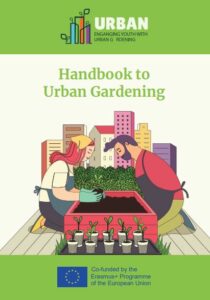 In a modern and rapidly changing world urbanization and over-concentration of population in large urban centers create new needs and living conditions that ultimately have direct or long-term effects on the individual and society as a whole. In fact, today, 55% of the world’s population lives in urban areas, a proportion that is expected to increase to 68% by 2050, according to a new United Nations data set.
In a modern and rapidly changing world urbanization and over-concentration of population in large urban centers create new needs and living conditions that ultimately have direct or long-term effects on the individual and society as a whole. In fact, today, 55% of the world’s population lives in urban areas, a proportion that is expected to increase to 68% by 2050, according to a new United Nations data set.
In such an environment, the idea of urban gardening came as another way of using available resources, such as urban areas, combining time and fulfilling needs such as livelihood, employment, socialization, entertainment, creativity.
Within this context, the six project partners have just developed the “Eco URBAN Gardening Handbook”, an innovative handbook aimed at youth workers and young people – especially vulnerable young people who need to find a way to social inclusion and the labor market and who want to enhance their skills in urban gardening.
The handbook consists of five sections that include an overview of what URBAN Gardening is, background information in terms of knowledge that one should have to start an urban garden, results of the research conducted in the project partner countries, useful information on funding opportunities, as well as policy recommendations for improving the existing practices.
The handbook provides practical information and guidelines for those who are interested in creating urban gardens and contributing towards a greener society.
You can download the handbook in all partner languages incl. EN and DE here.

